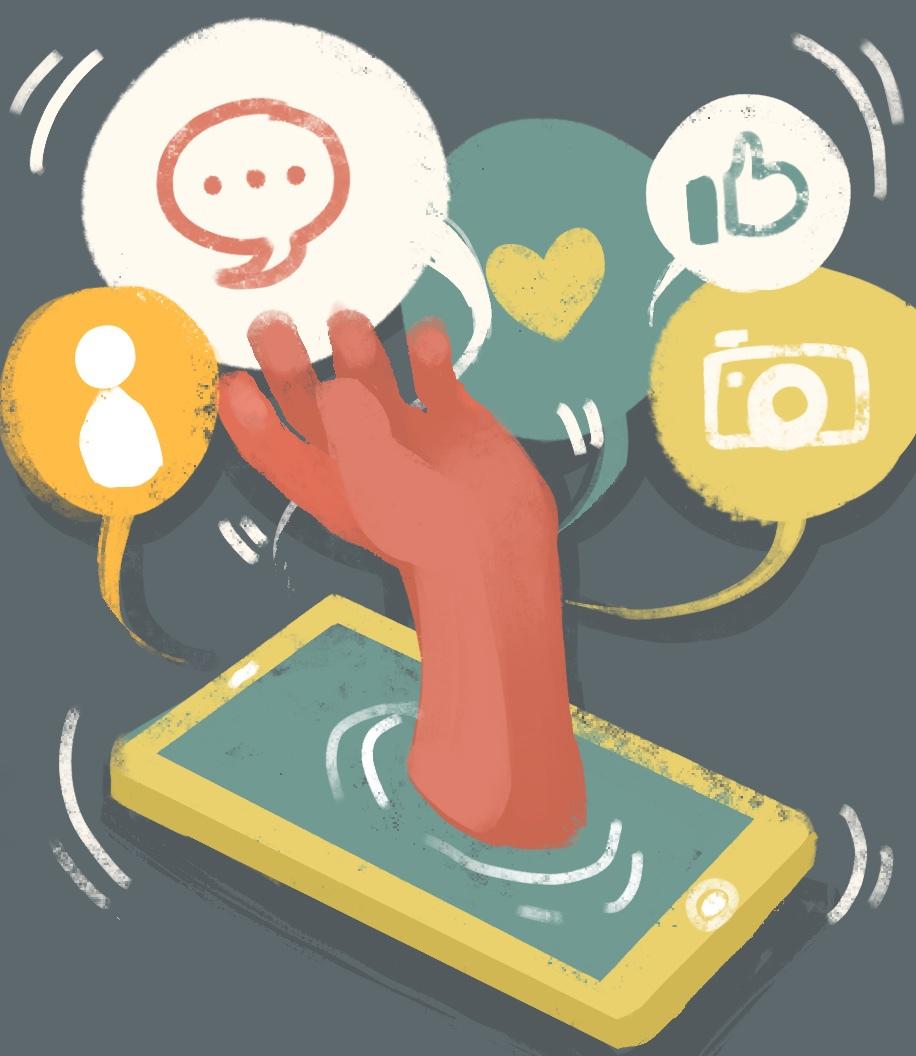

Nithila Rajan
Class of 2024San Jose, CA
About
Hello! My name is Nithila and I'm a senior in high school. Some of my hobbies include dancing, singing, and playing with my dog:) Academically, I am interested in Psychology and Kinesiology. I hope you all enjoy my podcast about social media and its impact on teen mental health!Projects
- Mindful scroll: A podcast exploring social media and its effects on teen mental health with mentor Abigail (Nov. 10, 2023)
Project Portfolio
Mindful scroll: A podcast exploring social media and its effects on teen mental health
Started May 18, 2023

Abstract or project description
According to the U.S. Department of Health and Human Services, 49% of adolescents have experienced a mental health condition in their lifetime. That's almost half the population; chances are you or someone you know are experiencing a mental health condition right now. This podcast, titled “Mindful Scroll,” explores social media and its effects on teen mental health. The podcast first reviews the science behind the negative effects of social media for adolescents, examining how social media can lead to social comparisons, peer pressure, and false validation. There are also silver linings, such as the ability to boost self-esteem, discover oneself, and form communities. Guest speaker and child psychiatrist, Dr. Janani, shares her expertise on using social media in healthy ways. From this insight, we conclude that social media can be a positive addition to one’s life if used in moderation and mindfully.
References
Introduction
- U.S. Department of Health and Human Services. (n.d.). Mental Health of Adolescents. Office of Population Affairs. https://opa.hhs.gov/adolescent-health/mental-health-adolescents#:~:text=Ma[...]an%20prevent%20some%20problems
- Fox, K. R., Choukas-Bradley, S., Salk, R. H., Marshal, M. P., & Thoma, B. C. (2020). Mental health among sexual and gender minority adolescents: Examining interactions with race and ethnicity. Journal of Consulting and Clinical Psychology, 88(5), 402. https://doi.org/10.1037/ccp0000486
- Williams, N. (2023). How does Education Affect Mental Health? News Medical Life Sciences. https://www.news-medical.net/health/How-does-Education-Affect-Mental-Health[...]ith,day%2Dto%2Dday%20stressors.
- Biswas, T., Scott, J. G., Munir, K., Renzaho, A. M., Rawal, L. B., Baxter, J., & Mamun, A. A. (2020). Global variation in the prevalence of suicidal ideation, anxiety and their correlates among adolescents: a population based study of 82 countries. EClinicalMedicine, 24. https://doi.org/10.1016/j.eclinm.2020.100395
Downsides
- Twenge, J. M., & Campbell, W. K. (2019). Media use is linked to lower psychological well-being: Evidence from three datasets. Psychiatric Quarterly, 90, 311-331. https://link.springer.com/article/10.1007/s11126-019-09630-7
- Twenge, J. M. (2019). More time on technology, less happiness? Associations between digital-media use and psychological well-being. Current Directions in Psychological Science, 28(4), 372-379. https://doi.org/10.1177/0963721419838244
- Balleys, C., Millerand, F., Thoër, C., & Duque, N. (2020). Searching for oneself on YouTube: Teenage peer socialization and social recognition processes. Social Media + Society, 6(2), 2056305120909474. https://doi.org/10.1177/2056305120909474
- Scissors, L., Burke, M., & Wengrovitz, S. (2016, February). What's in a Like? Attitudes and behaviors around receiving Likes on Facebook. In Proceedings of the 19th ACM conference on computer-supported cooperative work & social computing (pp. 1501-1510). https://doi.org/10.1145/2818048.2820066
Silver Linings
- Toma, C. L. (2013). Feeling better but doing worse: Effects of Facebook self-presentation on implicit self-esteem and cognitive task performance. Media Psychology, 16(2), 199-220. https://doi.org/10.1080/15213269.2012.762189
- Marengo, D., Montag, C., Sindermann, C., Elhai, J. D., & Settanni, M. (2021). Examining the links between active Facebook use, received likes, self-esteem and happiness: A study using objective social media data. Telematics and Informatics, 58, 101523. https://doi.org/10.1016/j.tele.2020.101523
- Balleys, C., Millerand, F., Thoër, C., & Duque, N. (2020). Searching for oneself on YouTube: Teenage peer socialization and social recognition processes. Social Media + Society, 6(2), 2056305120909474. https://doi.org/10.1177/2056305120909474